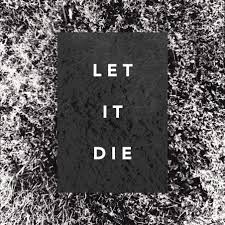die
英 [daɪ]
美 [daɪ]
- vi. 死亡;凋零;熄灭
- vt. 死,死于…
- n. 冲模,钢模;骰子
- n. (Die)人名;(西)迭;(阿拉伯)迪埃
使用频率:

记忆方法
谍〈die〉报工作危险,多是九死一生
中文词源
die 死
来自PIE*dheu, 离开,死亡,词源同dead, death.
die 骰子来自拉丁语datum, 给予,词源同date, donate. 原指掷骰子,后指骰子。
英语词源
- die
-
die: English has two distinct words die. The noun, ‘cube marked with numbers’, is now more familiar in its plural form (see DICE). The verb, ‘stop living’ [12], was probably borrowed from Old Norse deyja ‘die’. This, like English dead and death, goes back ultimately to an Indo- European base *dheu-, which some have linked with Greek thánatos ‘dead’.
It may seem strange at first sight that English should have borrowed a verb for such a basic concept as ‘dying’ (although some have speculated that a native Old English verb *dīegan or *dēgan did exist), but in fact it is a not uncommon phenomenon for ‘die’ verbs to change their meaning euphemistically, and therefore to need replacing by new verbs. In the case of the Old English verbs for ‘die’, steorfan survives as starve and sweltan in its derivative swelter, while cwelan is represented by the related cwellan ‘kill’, which has come down to us as quell.
=> dead, death - die (v.)
- mid-12c., possibly from Old Danish døja or Old Norse deyja "to die, pass away," both from Proto-Germanic *dawjan (cognates: Old Frisian deja "to kill," Old Saxon doian, Old High German touwen, Gothic diwans "mortal"), from PIE root *dheu- (3) "to pass away, die, become senseless" (cognates: Old Irish dith "end, death," Old Church Slavonic daviti, Russian davit' "to choke, suffer").
It has been speculated that Old English had *diegan, from the same source, but it is not in any of the surviving texts and the preferred words were steorfan (see starve), sweltan (see swelter), wesan dead, also forðgan and other euphemisms.
Languages usually don't borrow words from abroad for central life experiences, but "die" words are an exception, because they are often hidden or changed euphemistically out of superstitious dread. A Dutch euphemism translates as "to give the pipe to Maarten." Regularly spelled dege through 15c., and still pronounced "dee" by some in Lancashire and Scotland. Used figuratively (of sounds, etc.) from 1580s. Related: Died; dies. - die (n.)
- early 14c. (as a plural, late 14c. as a singular), from Old French de "die, dice," which is of uncertain origin. Common Romanic (cognates: Spanish, Portuguese, Italian dado, Provençal dat, Catalan dau), perhaps from Latin datum "given," past participle of dare (see date (n.1)), which, in addition to "give," had a secondary sense of "to play" (as a chess piece); or else from "what is given" (by chance or Fortune). Sense of "stamping block or tool" first recorded 1690s.
权威例句
- 1. He won his first Derby on the aptly named "Never Say Die".
- 他驾驭着这匹名副其实的“永不言败”夺得了他的第一个德比马赛冠军。
- 2. You stay here, you die. No two ways about it.
- 你若留在这里,必死无疑。
- 3. A new study proved conclusively that smokers die younger than non-smokers.
- 一项新的研究确证了吸烟者比不吸烟者死得早。
- 4. Lung cells die and are replaced about once a week.
- 肺细胞约每周新老更替一次。
- 5. They often take a long time to die back after flowering.
- 花期过后,它们的枝叶常常过很长一段时间才会枯萎。